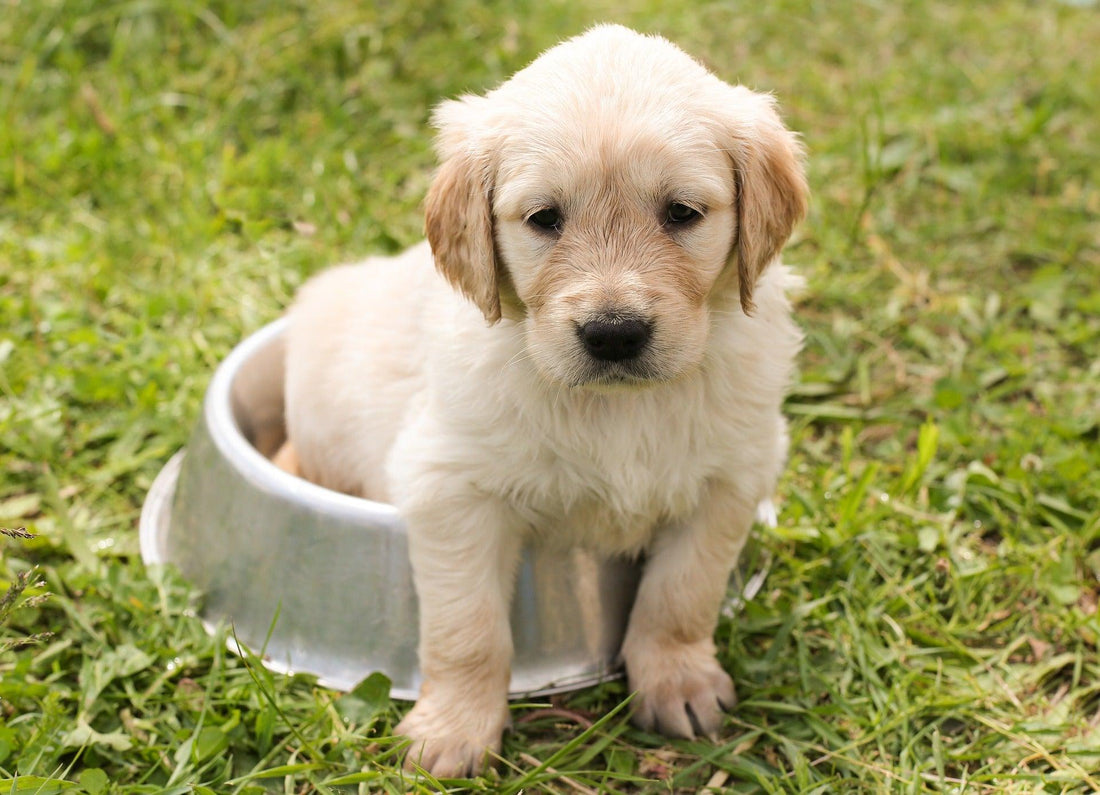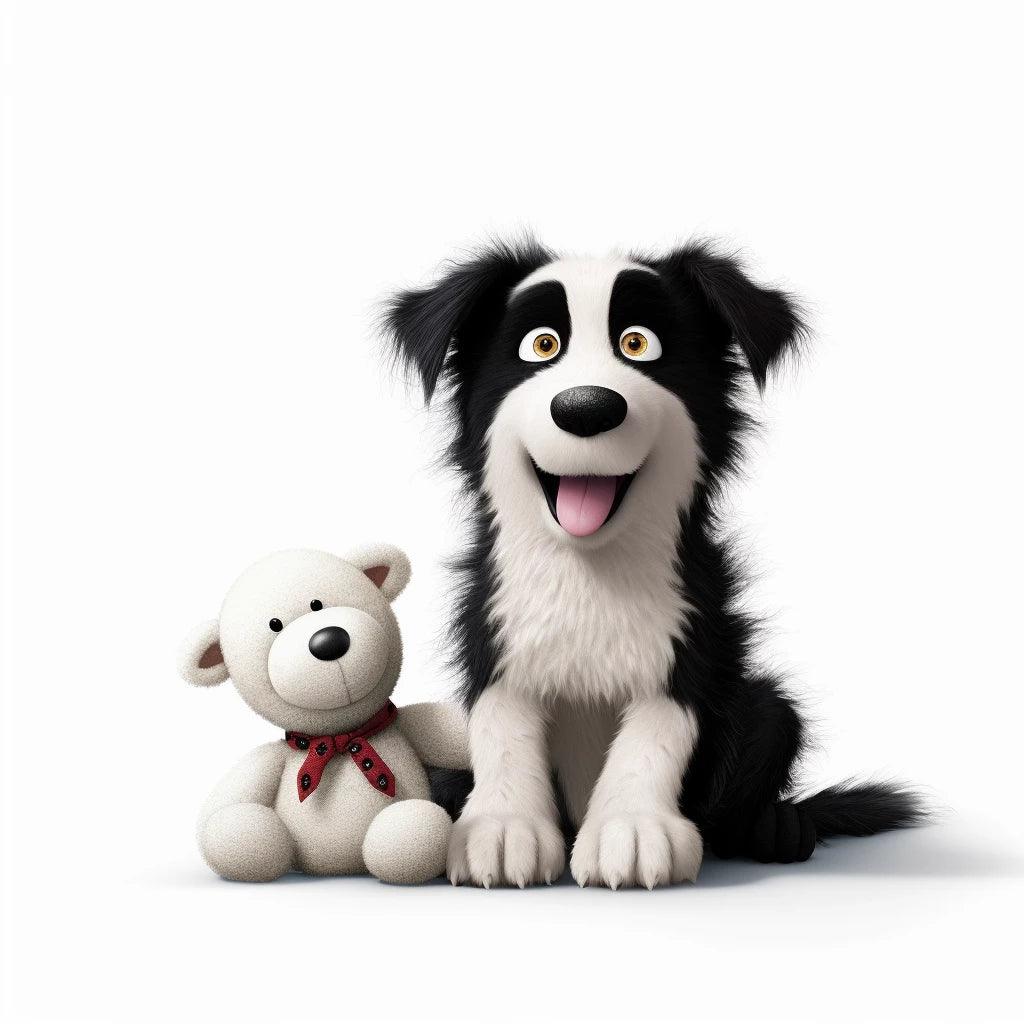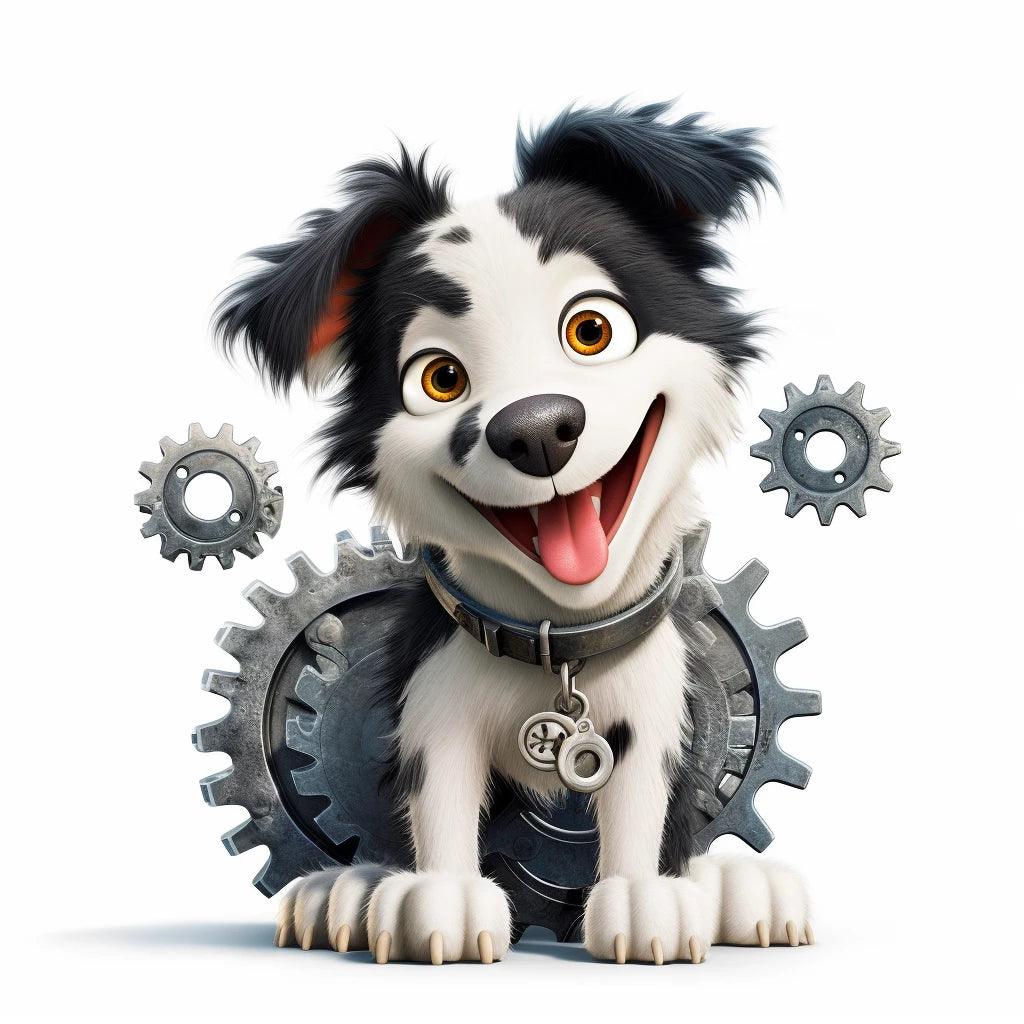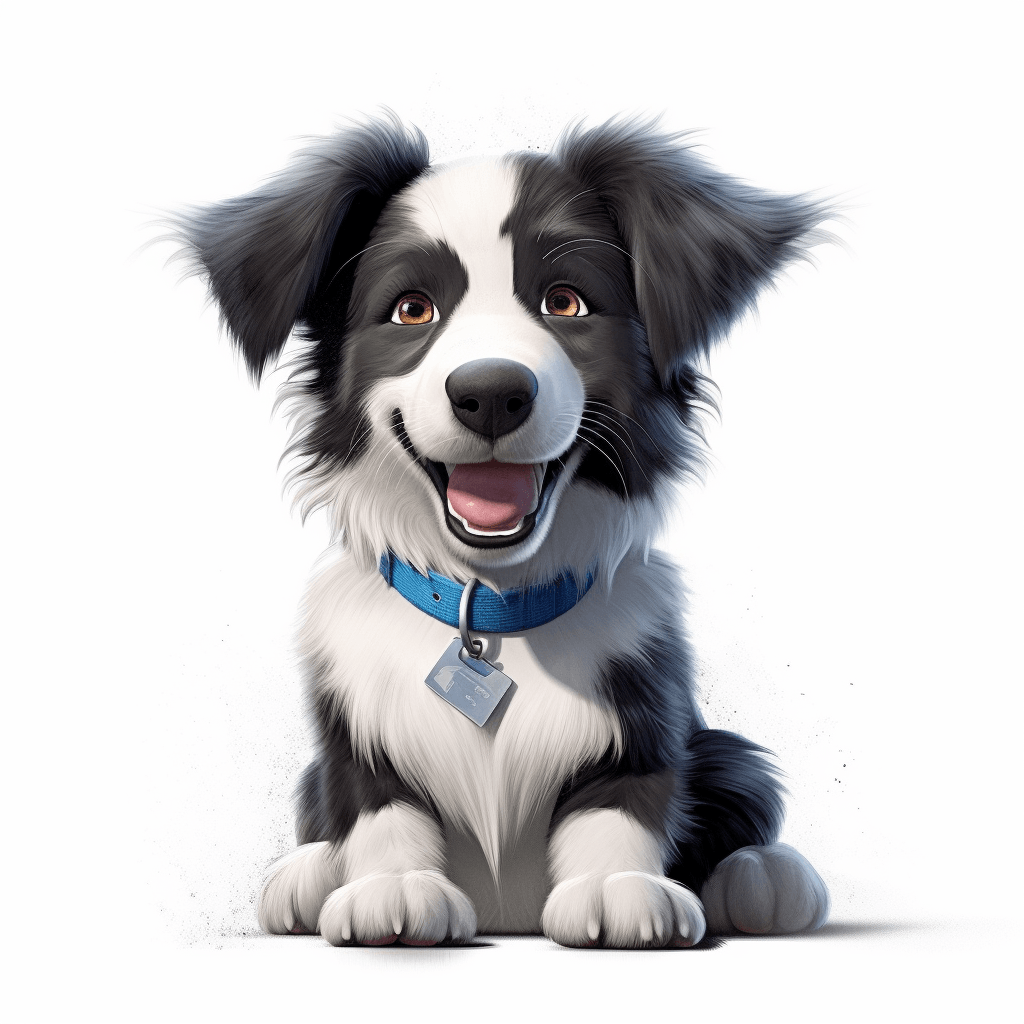
10 questions to ask yourself before adopting a dog
Share
Do you love dogs and dream of having one in your home? This is a great idea, because dogs are wonderful animals that can bring you a lot of joy, tenderness and loyalty. But getting a dog is not a decision to take lightly. It is a long-term commitment that involves responsibilities and obligations. You must be ready to assume the physical, emotional and social needs of your future four-legged companion, and to offer him a life adapted to his species, his breed and his personality. You must also be aware of the constraints and costs of owning a dog, and of the possible difficulties you may encounter in its training or behavior. In short, you have to ask yourself the right questions before getting a dog, and find out about the best practices to make him happy and balanced. In this article, I will help you see things more clearly by presenting the 10 essential questions to ask yourself before getting a dog. I will also give you advice based on positive dog training, a learning method that respects the well-being of the dog and its deep nature. I am a world-renowned dog trainer who promotes positive psychology, and I will pass on my experience and know-how to you to support you in your adoption project. So, are you ready to welcome a new member into your family? Let's go !
Am I ready to make a long-term commitment to a dog?
The first question to ask yourself before getting a dog is: am I ready to make a long-term commitment to a dog? Indeed, adopting a dog is not a trivial or temporary act. It's a decision that will change your life and that of your future partner for years to come. You must therefore be aware of what this implies and be sure of being able to assume this commitment.
A dog can live on average between 10 and 15 years, depending on its breed, size and state of health. During this entire period, you will be responsible for their well-being and safety. You will need to provide him with suitable, quality food, regular veterinary care and, if necessary, identification by microchip or tattoo, animal health insurance, sterilization or contraception if you do not want him to reproduce, etc. You will also need to provide him with a comfortable and secure environment, where he can rest, have fun and express himself freely. You will need to respect his physiological needs and allow him to do his business outside several times a day, regardless of the weather conditions or your schedule. You will also need to respect his emotional needs and provide him with affection, attention and support. You will need to listen to their communication signals and emotions, and adapt your attitude accordingly. You will also have to respect his social needs and allow him to meet other dogs and other humans, while respecting the rules of canine sociability. You will also have to teach him the rules of social life and the limits to respect, using positive and caring methods. Finally, you will have to respect his cognitive needs and offer him fun, stimulating and enriching activities, which will appeal to his intelligence, his curiosity and his instinct.
All of this takes time, energy, patience, consistency, motivation and love. You have to be willing to dedicate part of your day and your life to your dog, and to make compromises if necessary. You must also be prepared to face any difficulties that you may encounter with your dog: domestic or outdoor accidents, illnesses or injuries, behavioral problems or conflicts with other animals or people, etc. You must be able to handle these situations calmly and responsibly, and to seek help from a professional if necessary.
Taking a dog is therefore a long-term commitment that should not be taken lightly. You have to be sure you have the abilities, resources and willpower necessary to give your dog a happy and balanced life. You must also be aware that getting a dog will change your lifestyle and your habits, and that you will have to adapt to its needs and personality. Finally, you must be aware that taking a dog is a source of joy but also of pain, because you will have to face its aging and death. You must therefore be ready to go through all these stages with your dog, and to accompany him until the end with respect and dignity.
Do I have the financial means to support a dog?
The second question to ask yourself before getting a dog is: do I have the financial means to support a dog? Indeed, owning a dog has a significant cost, which varies according to the size, breed, age and state of health of the animal, but also according to the owner's choices. You must therefore be able to cover expenses related to food, veterinary care, accessories and ancillary services.
Food represents the largest part of the budget spent on the dog. Depending on the type and quality of the food chosen (kibble, mash, household ration), the average cost of a dog per year for food can vary between €300 and €180012. There are also food supplements and treats that can improve the dog's health and well-being.
Veterinary care is also a large and sometimes unpredictable expense. You must plan for costs related to identification, sterilization or contraception, vaccines, dewormers and antiparasitics, which are essential or strongly recommended to protect the dog from diseases and parasites. These costs can amount to several hundred euros per year3. You must also anticipate possible costs linked to accidents, injuries, illnesses or surgical interventions, which can be very expensive depending on the seriousness of the case. To protect yourself against these risks, it may be wise to take out animal health insurance, which will reimburse all or part of the veterinary costs depending on the contract chosen. The average cost of health insurance for a dog is €200 per year1.
Accessories are also a source of expense for the dog. You must provide him with a comfortable basket or kennel, a bowl and water dispenser, a leash and collar or harness, toys and chewing objects, a brush and hygiene products (shampoo, toothpaste, etc.). ), etc. These accessories can cost between €50 and €200 per year depending on the quality and quantity chosen.
Finally, you must also take into account the additional services that may be necessary for the dog. For example, grooming by a professional can cost between €30 and €80 per session depending on the breed and condition of the dog's hair. Boarding or care with a private individual can cost between €10 and €20 per day depending on the service offered. Training or education with a dog trainer can cost between €30 and €60 per session depending on the method used. These services can be useful for the dog's well-being or to resolve behavioral problems.
In summary, the average cost of a dog per year can vary between €1000 and €3000, not including dog adoption fees4. You must therefore be sure to have sufficient financial means to meet the needs of the dog and offer it a quality life. You should also be aware that certain breeds or certain types of dogs are more expensive than others due to their specific needs or their fragility. You must therefore find out about the characteristics of the dog you wish to adopt before getting started.
Do I have the time and energy to take care of a dog?
Indeed, owning a dog requires time and energy, because you have to devote part of your day and your life to meet its needs and offer it a fulfilled life. You must therefore be sure to have a schedule compatible with the presence of a dog and to be motivated to share moments with him.
A dog needs to go out several times a day to do its business, exercise and explore its environment. You must therefore give him at least 3 to 4 daily outings, including a longer one (at least 30 minutes) to allow him to let off steam and socialize with other dogs. You also need to vary the places you walk to stimulate your interest and awareness. These outings are essential for the dog's physical and mental well-being, and should be done regardless of the weather conditions or your mood. You must therefore be ready to take your dog out every day, morning, noon and evening, and to devote at least one hour to it per day.
A dog also needs attention and affection from its owner. You must therefore give him time to play with him, caress him, brush him, congratulate him, etc. These moments are important to strengthen the bond between you and your dog, and to provide comfort and security. You must also pay attention to the signals your dog sends you, and respect his desires and limits. For example, if your dog comes to you asking for cuddles, you should give him some, but if your dog turns away or hides, you should leave him alone. So you have to be ready to spend time with your dog every day, and give him love and respect.
A dog also needs education and intellectual stimulation. It is therefore necessary to teach him the basic rules of life in society (recall, walking on a leash, sitting, lying down, etc.), as well as the limits to respect (do not bite, do not bark for no reason, do not get on the sofa). …). You must use positive and caring methods to educate your dog, rewarding him when he does well and ignoring when he does badly. We must also offer him fun and enriching activities that will appeal to his intelligence, his curiosity and his instinct (tracking games, agility, obedience, etc.). These activities are essential to stimulate the dog's brain and prevent it from becoming bored or developing behavioral problems. You must therefore be ready to train your dog every day, and to offer him challenges and discoveries.
In summary, owning a dog requires time and energy, because you have to take care of him every day and offer him a varied and stimulating life. You must therefore be sure to have a lifestyle compatible with the presence of a dog and to be motivated to share moments with him. You should also be aware that some dogs have more needs than others depending on their breed, their age or their character. You must therefore find out about the specifics of the dog you wish to adopt before getting started.
What type of dog suits me best based on my lifestyle, personality and expectations?
Indeed, there is a great diversity of breeds and types of dogs, each of which has its own physical and behavioral characteristics and specific needs. You must therefore choose a dog that is compatible with your lifestyle, your personality and your expectations, in order to avoid disappointments or conflicts.
To choose the dog that is best for you, there are several factors to consider, including:
-
The size of the dog: you must choose a dog adapted to your living space. If you live in an apartment, it is better to favor small or medium-sized breeds, which need less space and are easier to transport. If you live in a house with a garden, you can opt for large breeds, which need more space and are more robust. Be careful, however, not to confuse the size of the dog with its activity level: some small dogs are very energetic and need to exercise a lot, while some large dogs are calmer and need less exercise.
-
The dog's activity level: you must choose a dog that matches your pace of life and your desires. If you are sporty and like doing activities with your dog, you can choose dynamic and enduring breeds, such as working or hunting dogs (German Shepherd, Border Collie, Labrador Retriever, etc.). If you are more sedentary and prefer relaxing moments with your dog, you can choose calmer and less demanding breeds, such as pleasure or companion dogs (Bichon Maltese, Cavalier King Charles Spaniel, Pug, etc.).
-
The character of the dog: you must choose a dog that matches your personality and your expectations. If you are sociable and want an affectionate and playful dog, you can choose happy and friendly breeds, such as Retrievers, Boxers or Beagles. If you are rather independent and want a discreet and obedient dog, you can choose reserved and docile breeds, such as Greyhounds, Akita Inu or Shiba Inu. If you are protective and want a loyal and vigilant dog, you can choose brave and loyal breeds, such as Rottweilers, Dobermans or Belgian Shepherds.
In summary, to choose the type of dog that best suits you, you need to learn about the characteristics of different breeds and types of dogs, and compare their needs and abilities with your lifestyle, personality and expectations. You should also be aware that each dog is unique and may have individual variations compared to the standards of its breed. You must therefore also trust your feelings and your crush at the time of adoption.
How to choose a healthy and balanced dog from the different possible sources (breeder, shelter, individual, etc.)?
There are several ways to acquire a dog, each of which has advantages and disadvantages. You must therefore be vigilant and find out about the living conditions and health of the dog before adopting it.
If you want to buy a purebred dog, you can contact a professional breeder. It is the safest option to have a dog that meets the breed standard, with a pedigree and health guarantees. A good breeder cares about the well-being of their dogs and raises them in a clean and stimulating environment. It socializes them from a young age and accustoms them to noises, people and other animals. He vaccinates them, dewormes them and identifies them before selling them. He will provide you with the dog's birth certificate, his health record, his sales contract and his transfer certificate. He will advise you on the choice of puppy according to your lifestyle and your expectations. It will accompany you throughout the dog's life and will remain available if needed. The disadvantage of this option is the high cost of a purebred dog, which can vary between €500 and €3000 depending on the breed and the reputation of the breeder.
If you wish to buy a crossbred or non-pedigreed dog, you can contact an individual. This is the least expensive option for acquiring a dog, but also the riskiest. Indeed, there are serious individuals who take care of their dogs and who sell them with valid papers, but also dishonest individuals who carry out intensive breeding without respecting health standards or animal welfare. They often sell sick, unidentified, unvaccinated or too young dogs. They may also lie about the origin, breed or character of the dog. You must therefore be very careful and check several elements before buying a dog from an individual: the breeding place (clean, spacious, secure), the mother of the puppies (present, in good health, sociable), the puppies ( lively, curious, clean), documents (veterinary certificate, health record, transfer certificate).
If you want to adopt an abandoned or stray dog, you can contact a shelter or an association. This is the most supportive and ethical option for acquiring a dog, because you are offering it a second chance and freeing up space for another animal in distress. Shelters and associations take in dogs of all ages, all breeds and all characters. They treat them, identify them, vaccinate them and sterilize them before offering them for adoption. They will ask you for a small financial contribution (between €50 and €200) to cover part of the veterinary costs. They will provide you with the dog's health record and its adoption certificate. They will advise you on the choice of dog based on your profile and your expectations. They will support you in administrative procedures and in integrating the dog into your home. The disadvantage of this option is that you do not always know the dog's past or its possible traumas. It will therefore be necessary to show patience and understanding to restore his confidence and teach him the basic rules of family life. You will also need to be vigilant about the dog's compatibility with other animals or children.
In summary, to choose a healthy and balanced dog, you must find out about the different possible sources (breeding, shelter, individual, etc.) and check the living conditions and health of the dog before adopting it. You must also be aware of the advantages and disadvantages of each option, and choose the one that best corresponds to your values and your means. Finally, you must be ready to welcome the dog with respect and kindness, and to offer it a happy and balanced life.
How to prepare for the dog's arrival at home and welcome it in the best conditions?
The arrival of a dog in a new home is an important and stressful event for him, which requires good preparation and good adaptation. It is therefore necessary to anticipate the dog's needs and provide him with a comfortable and safe environment.
Before the arrival of the dog, the following elements must be planned:
-
Essential accessories for the dog: a basket or a kennel, a bowl and a water dispenser, a leash and collar or harness, toys and chewing objects, a brush and hygiene products (shampoo, toothpaste…), etc. You must choose accessories adapted to the size, weight and character of the dog, and place them in accessible and quiet places.
-
Diet adapted to the dog: you must find out about the type and quantity of food that the dog received before its adoption, and try to give it the same thing at the beginning to avoid digestive problems. You must also respect the dog's meal times and give him his ration two or three times a day. You should avoid giving him table scraps or foods that are toxic to him (chocolate, grapes, onion, etc.).
-
Dog safety: you must check that the accommodation and the garden are well fenced and that there are no potential dangers for the dog (sharp objects, toxic products, poisonous plants, etc.). You must also put valuable or fragile objects that the dog could damage or swallow out of reach. Finally, you must ensure that the dog is properly identified by microchip or tattoo, and that it wears a tag with your contact details.
When the dog arrives, the following rules must be respected:
-
Give him time to discover his new environment: you must let the dog explore his new territory at his own pace, without rushing him or forcing him. You need to show him the places where he can rest, eat, play and do his business. You must also introduce other members of the family (humans and animals) with gentleness and respect.
-
Give him attention and affection: you must welcome the dog with kindness and speak to him in a soft and reassuring voice. You should give him caresses, compliments and treats when he behaves well. You also need to play with him and offer him fun and stimulating activities.
-
Teach him the basic rules of family life: you must educate the dog as soon as he arrives by teaching him simple commands (recall, sit, lie down, etc.) and the limits to respect (do not bite, do not bark for no reason, do not get on the sofa…). You should use positive and caring methods to train the dog, rewarding him when he does well and ignoring when he does badly. You must also be consistent and constant in training the dog, and not change the rules along the way.
In summary, to prepare for the dog's arrival at home and welcome it in the best conditions, you must anticipate the dog's needs and offer it a comfortable and safe environment. You must also give him time to discover his new environment, give him attention and affection, and teach him the basic rules of family life. Finally, you must be patient and understanding with the dog, and offer him a happy and balanced life.
How do I take care of my dog on a daily basis and how can I ensure good health and well-being?
Owning a dog comes with responsibilities and obligations towards him. We must therefore provide him with the necessary care and offer him a life adapted to his needs.
To take care of your dog on a daily basis, you must respect the following elements:
-
The dog's diet: the dog must be given a quality diet, adapted to its age, size, weight and activity level. You must respect the dog's meal quantities and times, and not give him table scraps or foods that are toxic to him (chocolate, grapes, onion, etc.). You must also ensure that the dog always has fresh, clean water available.
-
Dog hygiene: the dog must be brushed regularly to maintain its hair and skin, and wash it with a suitable shampoo when it is dirty or smells bad. You must also clean your ears, eyes and teeth with specific products to avoid infections or diseases. Finally, you must cut your claws when they are too long or too sharp.
-
The dog's health: you must take the dog to the veterinarian at least once a year to have a health check-up and renew its vaccinations. It is also necessary to deworm it every 3 to 6 months and apply regular antiparasitic treatment to protect it from worms, fleas, ticks and other parasites. You must also monitor the dog's behavior and consult the veterinarian in the event of abnormal symptoms (loss of appetite, vomiting, diarrhea, lameness, cough, etc.).
-
The well-being of the dog: the dog must be offered a varied and stimulating life, which meets its physical, mental and emotional needs. You need to offer him daily outings so that he can exercise and explore his environment. We must also offer him fun and enriching activities that appeal to his intelligence, his curiosity and his instinct (tracking games, agility, obedience, etc.). Finally, you need to give him attention and affection to strengthen the bond between you and your dog, and to provide comfort and security.
In summary, to take care of your dog on a daily basis, you must provide him with the necessary care and offer him a life adapted to his needs. You must also pay attention to the signals your dog sends you, and respect his desires and limits. Finally, you must be responsible and respectful towards your dog, but also towards other animals and other people.
How can I prevent and resolve possible behavioral problems in my dog with the help of a professional if necessary?
Owning a dog is not always easy and it can happen that problems or difficulties arise during the dog's life. We must therefore be ready to face them and resolve them.
The problems or difficulties that you may encounter with your dog can be of several types:
-
Behavioral problems: the dog may adopt unwanted or annoying behaviors, such as barking incessantly, biting, running away, destroying objects, doing its business indoors, etc. These behaviors can have different causes, such as stress, boredom, fear, pain, dominance, etc. To correct them, you must identify the cause of the problem and remedy it. It is also necessary to educate the dog using positive and caring methods, rewarding him when he does well and ignoring when he does badly. You must also be consistent and constant in training the dog, and not change the rules along the way. If the problem persists or worsens, it may be helpful to consult a veterinarian or professional dog trainer.
-
Health problems: the dog may become ill or injured. You must then be attentive to the dog's symptoms and consult the veterinarian without delay. You must also follow the veterinarian's prescriptions and administer medications to the dog according to the indicated dosage. You must also ensure that the dog rests and recovers in a comfortable and safe environment. Finally, we must prevent illnesses and injuries by respecting dog hygiene and safety rules.
-
Financial problems: it may happen that the cost of maintaining the dog is too high or unexpected. You must then be able to meet the expenses linked to the dog's food, veterinary care, accessories and ancillary services. You must also anticipate possible costs linked to accidents, injuries, illnesses or surgical procedures for the dog. To protect yourself against these risks, it may be wise to take out animal health insurance, which will reimburse all or part of the veterinary costs depending on the contract chosen.
-
Relationship problems: it may happen that the dog does not get along with other members of the family (humans or animals) or with other people (neighbors, friends, passers-by, etc.). You must then be able to manage conflicts and promote harmony between the dog and those around him. It is also necessary to socialize the dog from an early age and accustom it to noises, people and other animals. You must also respect the dog's character and needs, and not impose situations on him that make him uncomfortable or stressful.
In summary, to deal with possible problems or difficulties that you may encounter with your dog you must be ready to face them and resolve them. You must also be vigilant and find out about the causes and possible solutions to problems or difficulties. Finally, you must be responsible and respectful towards your dog, but also towards other animals and other people.
How can I keep my dog happy and fulfilled throughout his life?
Owning a dog involves giving it a quality life and bringing it happiness and fulfillment. We must therefore be attentive to the needs and desires of the dog and offer him activities and times adapted to his age and state of health.
To ensure that your dog is happy and fulfilled throughout his life, you must respect the following elements:
-
Offer him a varied and stimulating life: you must offer the dog daily outings so that he can exercise and explore his environment. We must also offer him fun and enriching activities that appeal to his intelligence, his curiosity and his instinct (tracking games, agility, obedience, etc.). Finally, we must introduce him to new places, new people and new animals to stimulate his awareness and sociability.
-
Give him attention and affection: you must give the dog time to play with him, caress him, brush him, congratulate him, etc. You must also be attentive to the signals that the dog sends you, and respect its desires and limits. Finally, you need to speak to him in a soft and reassuring voice, and make him understand that you love him and that you are proud of him.
-
Ensure good health and well-being: the dog must be given a quality diet, adapted to its age, size, weight and activity level. You must also ensure that he always has fresh, clean water at his disposal. You should also take the dog to the veterinarian at least once a year to have a health check-up and renew its vaccinations. It is also necessary to deworm it every 3 to 6 months and apply regular antiparasitic treatment to protect it from worms, fleas, ticks and other parasites. Finally, you must monitor the dog's behavior and consult the veterinarian in the event of abnormal symptoms (loss of appetite, vomiting, diarrhea, lameness, cough, etc.).
-
Provide him with a comfortable and safe environment: you must provide the dog with a comfortable basket or kennel, a bowl and a water dispenser, a leash and collar or harness, toys and objects to chew, a brush and hygiene products (shampoo, toothpaste, etc.), etc. You must also check that the accommodation and the garden are well fenced and that there are no potential dangers for the dog (sharp objects, toxic products, poisonous plants, etc.). Finally, you must ensure that the dog is properly identified by microchip or tattoo, and that it wears a tag with your contact details.
In summary, to ensure that your dog is happy and fulfilled throughout his life, you must respect his needs and desires and offer him activities and times adapted to his age and state of health. It is also necessary to give him attention and affection and ensure good health and well-being. Finally, we must offer him a comfortable and safe environment. You should also pay attention to the dog's signs of happiness, such as wagging its tail, smiling, snuggling up to you, licking you, etc. Finally, you have to be happy yourself with your dog, because happiness is contagious!
How can I ensure that my dog and I live in harmony with other animals and other people?
Owning a dog involves respecting the rights and duties of the owner and the dog towards other living beings. You must therefore be responsible and respectful towards your dog, but also towards other animals and other people.
To ensure that you and your dog live in harmony with other animals and other people, you must respect the following rules:
-
Socialize your dog from a young age: you must accustom your dog to noises, people and other animals from a young age, so that he learns to know them and accept them. You need to introduce him to a variety of people and animals, in different places, and provide him with positive experiences. You must also teach him to obey basic commands (recall, sit, lie down, etc.) and to walk on a leash without pulling.
-
Respect the character and needs of the dog: you must know the character and needs of your dog, and not impose situations on him that make him uncomfortable or stressful. You must respect his desires and his limits, and not force him to interact with people or animals he does not like. You must also respect his rhythm of life and his moments of rest, and not disturb him when he sleeps or when he eats.
-
Respect the legislation in force: you must find out about the legislation in force concerning the keeping of a dog, and comply with it. In particular, you must identify your dog by electronic chip or tattoo, vaccinate it against rabies, sterilize it if necessary, make it wear a tag with your contact details, put a muzzle on it if it is obligatory, etc. You must also respect the rules of civility and cleanliness, such as picking up his droppings, keeping him on a leash in public places, not letting him bark for no reason, etc.
-
Respect other animals and other people: you must ensure that your dog does not bother or hurt other animals or other people. He must be monitored when he is in contact with them, and intervene if necessary. You must also ask permission before petting another animal or letting your dog approach a person. Finally, you must be polite and courteous with other dog owners or other users of public places.
In summary, to ensure that your dog and yourself live in harmony with other animals and other people, you must respect the rights and duties of the owner and the dog towards other living beings. You must also be responsible and respectful towards your dog, but also towards other animals and other people. Finally, we must be aware that owning a dog is a source of joy and happiness, but also of responsibility and commitment.
Taking a dog is a source of happiness and complicity, but also a responsibility that requires seriousness and consistency. You have to ask yourself the right questions before taking the plunge, and find out about the best practices to offer your dog a fulfilling and harmonious life.
And if you are looking for quality accessories for your dog, I recommend the online store tao-K9.com which offers innovative, ecological and ethical products for the well-being of your four-legged companion.






